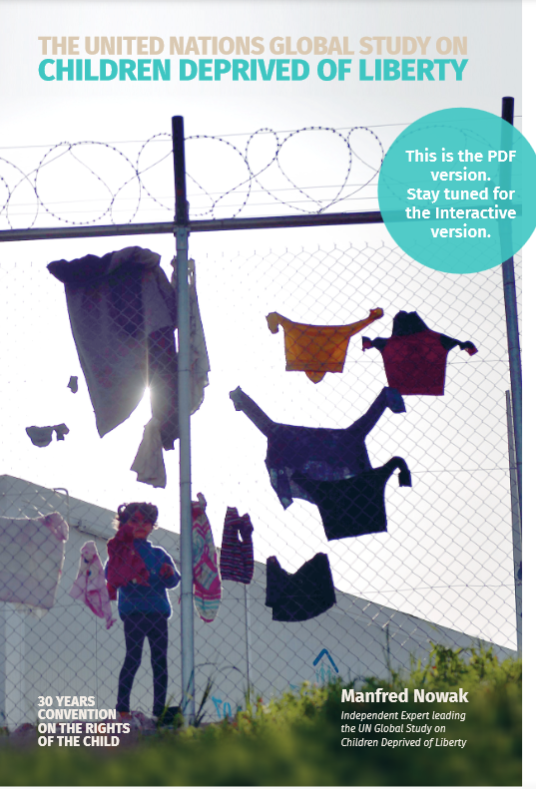Children deprived of liberty remain an invisible and forgotten group in society notwithstanding the increasing evidence of these children being in fact victims of further human rights violations. Countless children are placed in inhuman conditions and in adult facilities – in clear violation of their human rights - where they are at high risk of violence, rape and sexual assault, including acts of torture and cruel, inhuman or degrading treatment or punishment.
Children are being detained at a younger and younger age and held for longer periods of time. The personal cost to these children is immeasurable in terms of the destructive impact on their physical and mental development, and on their ability to lead healthy and constructive lives in society.
The associated financial costs to governments can also have a negative impact on national budgets and can become a financial drain when their human rights obligations are not upheld with regard children deprived of liberty.
To address this situation, in December 2014 the United Nations General Assembly (UNGA) adopted its Child Rights Resolution (A/RES/69/157), inviting the United Nations Secretary-General (SG) to commission an in-depth global study on children deprived of liberty (§ 52.d). On 25 October 2016, the Secretary General welcomed the appointment of Professor Manfred Nowak as Independent Expert to lead the Study. By Resolution 72/245, the UNGA invited the Independent Expert to submit a final report on the Study during its seventy-fourth session in September 2019.
Based on the over-all mandate established by the UNGA Resolution, the following core objectives of the Global Study have been identified:
- Assess the magnitude of the phenomenon of children being deprived of liberty, including the number of children deprived of liberty (disaggregated by age, gender and nationality), as well as the reasons invoked, the root-causes, type and length of deprivation of liberty and places of detention;
- Document promising practices and capture the view and experiences of children to inform the recommendations that the Global Study will present;
- Promote a change in stigmatizing attitudes and behaviour towards children at risk of being, or who are, deprived of liberty;
- Provide recommendations for law, policy and practice to safeguard the human rights of the children concerned, and significantly reduce the number of children deprived of liberty through effective non-custodial alternatives, guided by the international human rights framework.
| Year of publication | |
| Originally published | 21 Nov 2019 |
| Related organisation(s) | UN - United Nations |
| Knowledge service | Metadata | Migration and Demography |
| Digital Europa Thesaurus (DET) | child |
Share this page

